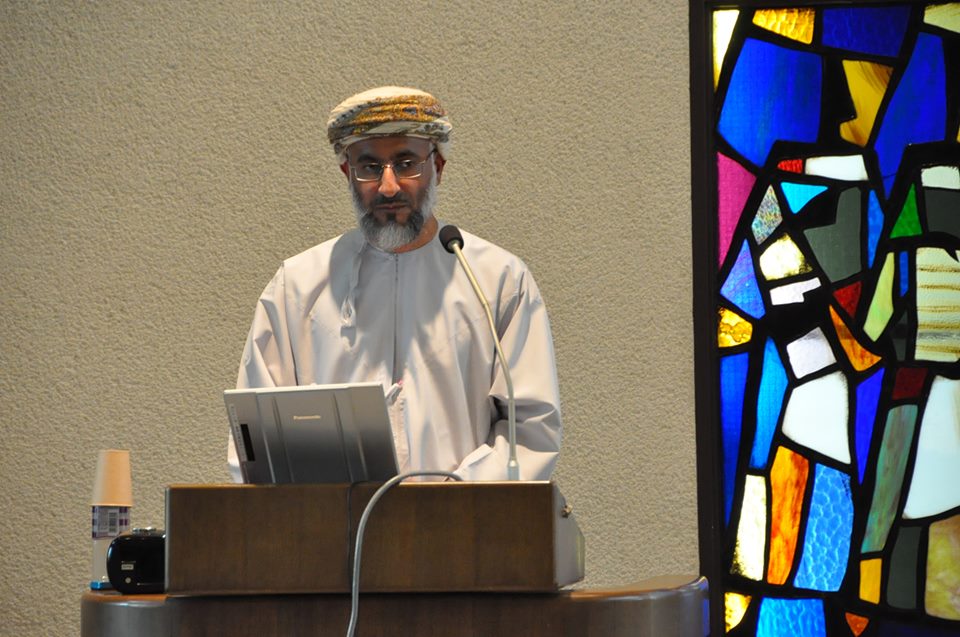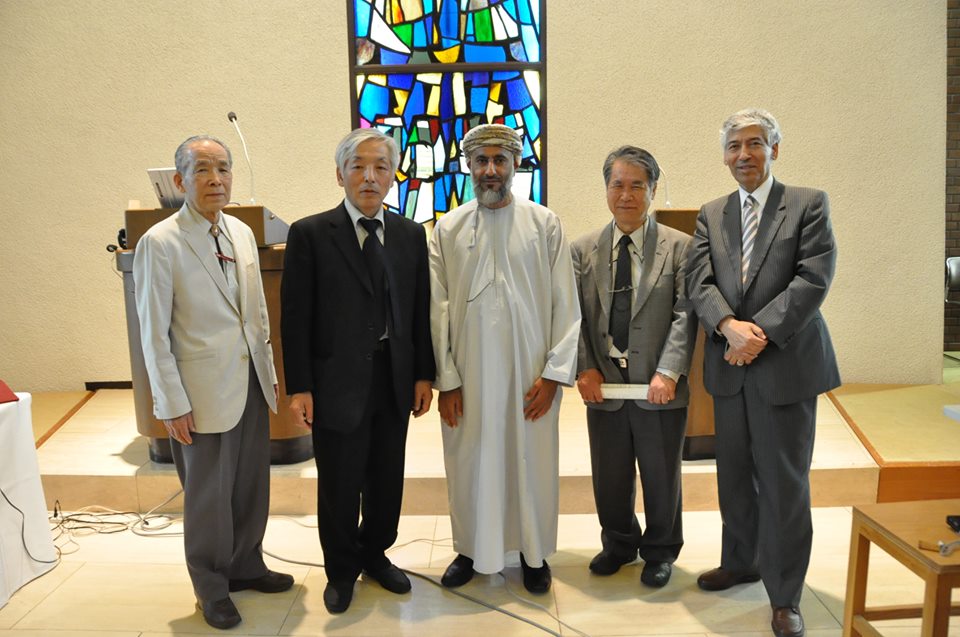Center for Interdisciplinary Study of Monotheistic Religions(CISMOR)Doshisha University
> Public Lectures > On Seeing GodPublic Lectures
On Seeing God
| Date: |
2016/05/12 16:40-18:15 |
|---|---|
| Place: |
Divinity Hall Chapel, Imadegawa Campus, Doshisha University |
| Lecture: | Dr. Sulaiman bin Ali bin Amir ALShueili (Sultan Qaboos University College of Education, Islamic Sciences Department) |
| Summary: | |
|
Dr. Al-Shueili discussed the controversy in Islam around the possibility of seeing God, while referencing the Quran and hadith. The definition of “seeing” is both seeing with the eyes (the visual organ), and seeing with the heart (understanding), and followers of Islam consider both of these meanings to be seeing God. Regarding seeing God with the eyes, the question is about the possibility of seeing God and who can have such experiences. First is the theory that considers it possible to see God in the present world and in the next world, and within that, one theory holds that it is generally possible for believers, while another theory considers it possible in the present world only for people such as prophets. Next, there is the theory that holds that God can only be seen in the next world and that seeing God is the greatest blessing of the next world; among these, there are three possibilities: that only believers can see, that both deep believers and non-believers can see, or that believers, false believers, and non-believers alike can all see. Finally, there is the theory that it is not possible to see God in this world or the next world at all. As a basis for the potential of seeing God in this world, if God’s creatures exist and can see one another, it should hold that because the Creator’s creations exist, it is possible to see the Creator. However, there are many things that fellow creatures cannot see in one another, and furthermore, if we consider the difference in character between the Creator and the created, this analogy cannot apply. In the Quran, Moses is quoted as saying that God will be seen in the present world, but this is not due to his ignorance, but is thought to be for elucidating that the people’s desire to see God is impossible to be fulfilled. There is also the theory that it is possible to see God based on the “Night Journey” hadith. But from the fact that the prophet’s wife Aisha said “Whoever says that Muhammed saw his Lord has attributed a lie to Allah,” and the fact that the words of the prophet in other hadith indicate the impossibility of seeing, from the Quran and the hadith it is thought that seeing God in this world is impossible. As for seeing God in the next world, there are passages in which the wording about seeing on the last day suggests that even if the meaning is seeing with the eyes, in practice seeing the thing itself, in other places it seems to mean “wait eagerly for,” and there is no clear evidence of seeing God in either the Quran or the hadith; these passages are thought to mean entering heaven. Because entering heaven is the believers’ greatest blessing, it is problematic to point out that due to the assumption that all people will be judged on judgment day, it could be possible that all of mankind will see God there. Furthermore, the words of the prophet that have low confidence in traditional paths have no claim to grounding the arguments of questions within our faith, and after studying various hadith, some sects conclude that seeing God is impossible in both this world and the next. Regarding the repudiation of seeing God, as an intellectual basis for the act of seeing, there are certain requirements such as the existence, size, distance, need for light, and so on of the thing being seen, but since God is not believed to have such attributes, God the Creator is not considered to be an object for the created to see. In the Quran, the Word of God says, “You will not see me,” and in these words, there are no limitations on time or space, and in no way can they be changed. Because the ability to see God in this world or the next would contradict these words that deserve the utmost faith, it can be said that in the Quran, the possibility of seeing God is repudiated. Furthermore, there are also passages in the hadith that indicate the impossibility of seeing God. There are various debates like these, but we Ibadis take the position that it is not possible to see God in this world or the next. There are times when figurative expressions of seeing God are used, but God never changes according to attributes, and cannot be compared with any kind of created being. Dr. Al-Shueili stated that hadith that use parables occasionally tell of God in various situations and places, and doing so is no more than using the most appropriate phrasing to make listeners understand; thus, he concluded the lecture. After the lecture, there was a question and answer session with the audience. Tomoki Asaka Postdoctral Fellow, CISMOR |
|
|
*Lecture in Arabic and English , interpretation will be provided. *Admission Free, No Reservation Necessary Organizer: CISMOR, Doshisha University Co-organizer: School of Theology, Doshisha University |
|
|
20160512poster |
|

